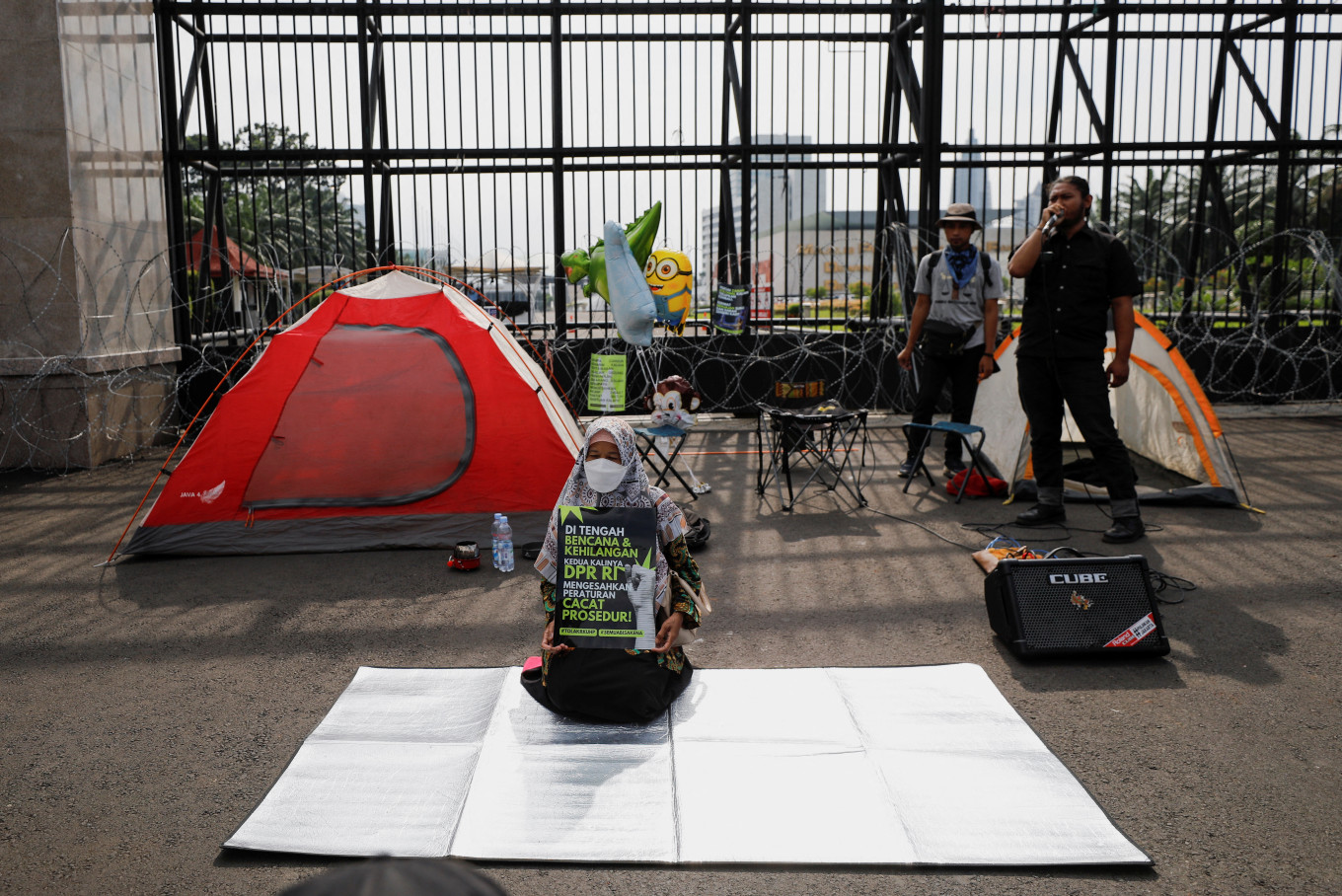Popular Reads
Top Results
Can't find what you're looking for?
View all search resultsPopular Reads
Top Results
Can't find what you're looking for?
View all search resultsCourt dismisses petition on presidential insult, finds petitioners lack legal standing
The Constitutional Court dismissed on Tuesday a request to revoke controversial provisions in the new penal code that make insulting the government and a sitting president a crime, saying that the petition was premature and petitioners lacked standing to pursue the case.
Change text size
Gift Premium Articles
to Anyone
 Activists take part in a protest after the House of Representatives approved a new criminal code that will ban sex outside marriage, cohabitation between unmarried couples, insulting the president and expressing views counter to the national ideology, outside the legislative building in Jakarta on Dec. 6, 2022.
(Reuters/Willy Kurniawan)
Activists take part in a protest after the House of Representatives approved a new criminal code that will ban sex outside marriage, cohabitation between unmarried couples, insulting the president and expressing views counter to the national ideology, outside the legislative building in Jakarta on Dec. 6, 2022.
(Reuters/Willy Kurniawan)
T
he Constitutional Court dismissed on Tuesday a request to revoke controversial provisions in the new penal code that make insulting the government and a sitting president a crime, saying that the petition was premature and petitioners lacked standing to pursue the case.
The nine-member bench said the provisions in question had not been in effect when two lecturers, a student and a content creator filed their motion in January, days after President Joko "Jokowi" Widodo signed the revised Criminal Code, which was passed by the House of Representatives in December 2022. The new code stipulates that it will take effect three years after its Jan. 2 enactment.
"The petitioners had no legal standing. Even if the petitioners had legal standing, their petition was premature," chief justice Anwar Usman read out the decision on Tuesday. "Therefore, the court decides not to process the case any longer.”
The petitioners requested the court to annul Articles 218 and 219, which stipulate a punishment of up to three years for insulting a sitting president and up to four years if the offense is committed using a technological device. They also sought the annulment of Articles 240 and 241, which criminalize insulting the government, the House, the Regional Representatives Council (DPD), the Supreme Court and the Constitutional Court, and carry a punishment of one and a half years in prison and up to three years if committed using a technological device.
The petitioners feared that the insertion of the once repealed provisions in the new penal code could be used to criminalize critics.
Similar provisions in the old criminal code were revoked by the Constitutional Court in 2006 and 2007, respectively, on the grounds that they undermined freedom of expression and were subjected to multiple interpretations at the expense of legal certainty.
But policymakers reintroduced them in the new penal code, insisting that the current provisions were different, as only the offended party, in this case, the president, could initiate legal proceedings by filing a report with the police.


















